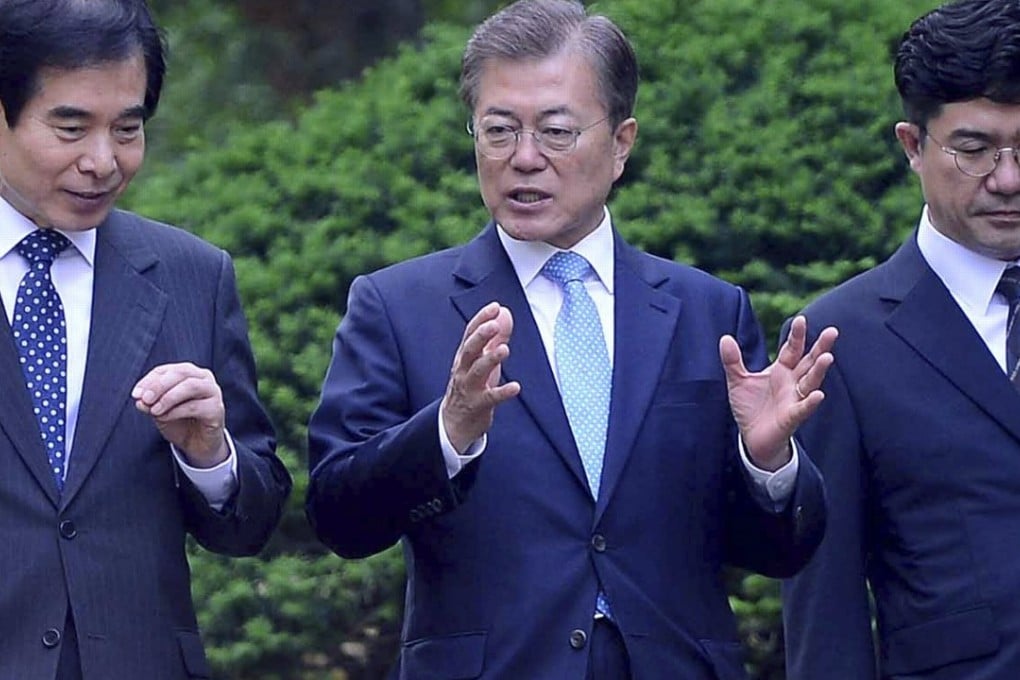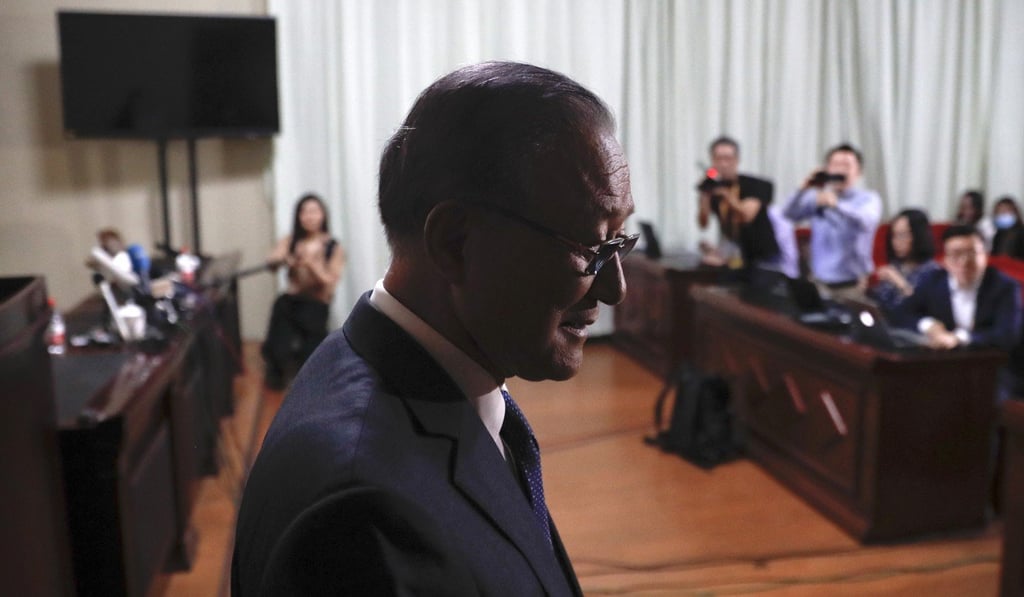South Korea’s new president must hit the ground running to deal with North Korea
John Barry Kotch say the just-elected liberal Moon Jae-in would do well to take the lead diplomatically on resolving the stand-off over North Korea, but getting China and the US on the same page won’t be easy

South Koreans could be forgiven for feeling a little like Mexicans, whose unkind fate has landed them “so far from God and so close to the United States”. For Koreans, a self-described “shrimp among whales” and prone to being crushed in the game of Great Power rivalry, the situation is much more complicated and the necessity for balance and nuance in policy terms much greater.
While economic security resides increasingly with China, its largest trading partner, national security with the US, its protector of last resort, and with a historical legacy shadowed by Japan, its overriding preoccupation is with fending off its nuclear nemesis to the north.
Phone diplomacy: South Korean leader Moon Jae-in speaks with Abe, Xi and Trump
The last four South Korean administrations reflected starkly different outlooks. The first two, presided over by Kim Dae-jung and his successor, Roh Moo-hyun, spanning the years 1998-2008, hewed to the “sunshine policy of engagement” with the North, featuring two summits, family exchanges, tourism and the establishment of the Kaesong economic zone. This worked well during the Clinton administration, but ran into headwinds after 2000 with the election of George W. Bush, who labelled Kim Jong-il a “pygmy” leader who “starves his people”, consigning the North Korean regime to membership in the “axis of evil”.
By contrast, the last two administrations (2009-2017) led by conservatives, Lee Myung-baek and the recently impeached Park Geun-hye, took a hard line, not out of sync with the Obama administration’s policy of “strategic patience”. By now, the gains of the Kim and Roh years have become a distant memory.

From North Korea to THAAD: What Moon Jae-in’s victory means for Seoul
